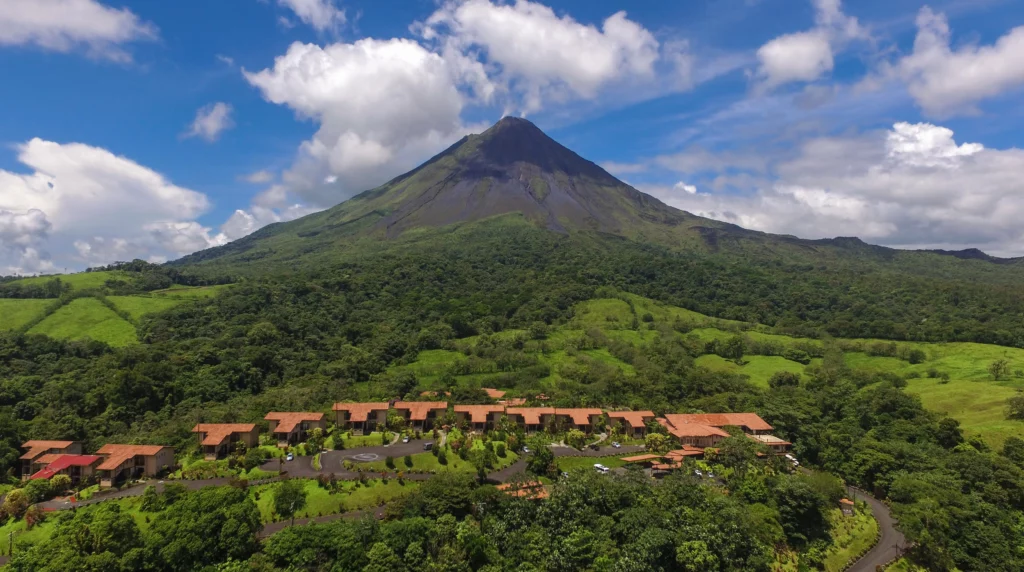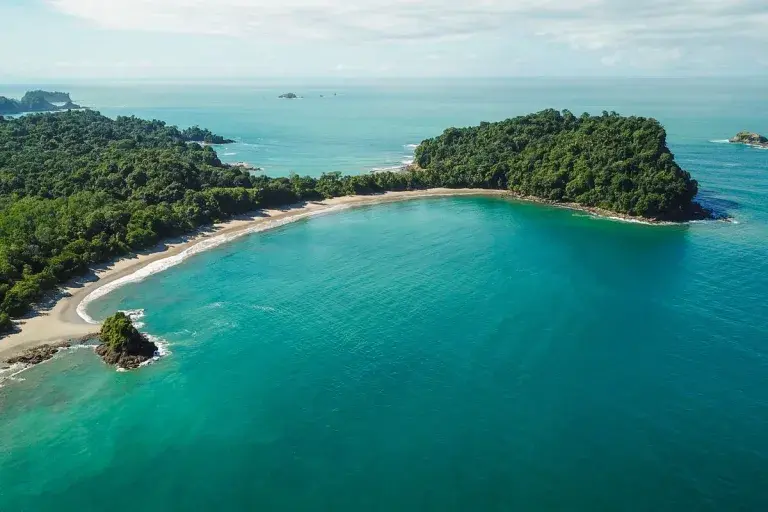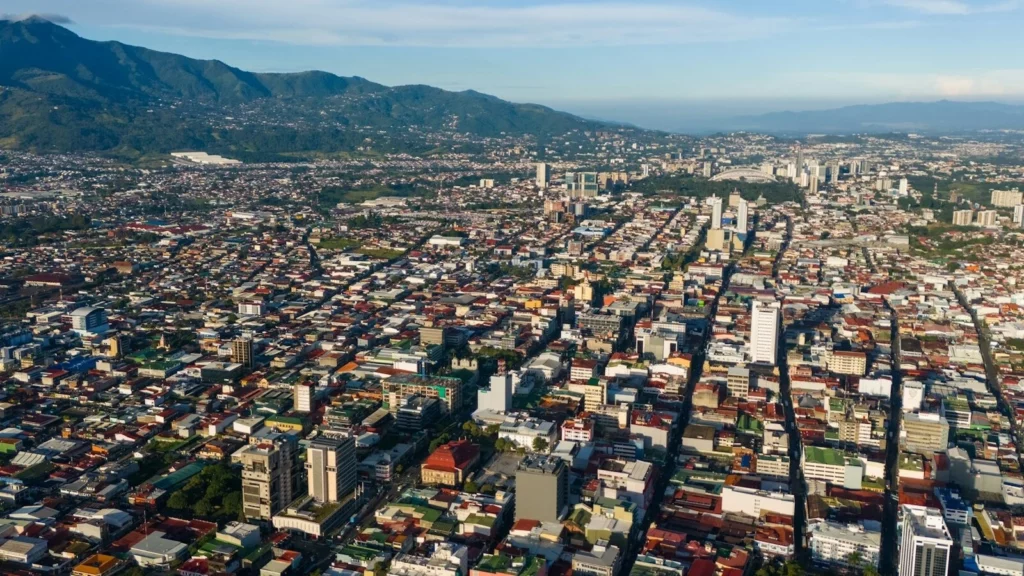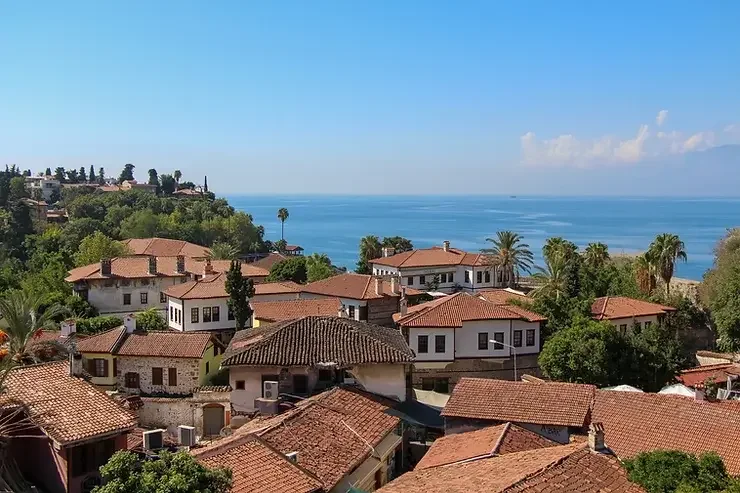When Sarah moved from Chicago to Costa Rica’s Central Valley, she budgeted $3,500 to ship her belongings. The final bill? Nearly $7,200.
“I never imagined how quickly storage fees would pile up while my shipment sat in customs or that it would be held an additional two weeks because my inventory list wasn’t detailed enough,” she recalls.
Shipping your life to Costa Rica comes with a learning curve: navigating customs regulations, understanding the real costs beyond the initial quote, and deciding what to bring versus what to buy locally. This comprehensive guide draws on experiences from expats who have successfully made the move, providing clear, practical insights to help you transition smoothly into your new Pura Vida lifestyle.
Shipping Options to Costa Rica
Container Shipping vs. Air Freight: Which Works Best for Expats?
Choosing the right shipping method will shape your timeline, your costs, and the overall ease of your move. Here’s how the main options compare:
Full Container Load (FCL)
You get exclusive use of a 20- or 40-foot container. Ideal for families or anyone moving an entire household.
Less than Container Load (LCL)
Your belongings share container space with other shipments. More economical for smaller moves, though coordination is more complex.
Air Freight
The fastest option (delivered in days), but typically 4–6 times more expensive than sea freight for the same volume.
| Shipping Method | Typical Timeline | Cost Range | Best For |
| FCL (Sea) | 45–60 days | $4,500–$9,000 | Full household moves |
| LCL (Sea) | 60–75 days | $1,500–$4,000 | Partial or smaller moves |
| Air Freight | 7–14 days | $5,000–$15,000 | Essentials, urgent relocations |
Pro Tip: Ship the bulk of your home by sea, but send essential home-office or personal items by air so you can settle in immediately upon arrival.
Door-to-Door vs. Port-to-Port: What Level of Service Should You Expect?
Door-to-door
The most seamless option: pickup at your home and delivery directly to your Costa Rica residence. Expect to pay 30–40% more, but for many first-time movers, the reduced stress is worth it.
Door-to-port
Transport from your home to the Costa Rican port. You handle customs clearance and delivery arrangements locally.
Port-to-port
Only covers ocean transport. You’ll need to arrange pickup, delivery, and all customs procedures independently.
Common hidden costs in port-to-port arrangements:
- Local transportation to and from ports: $400–$800
- Container handling fees (both ends): $300–$500
- Documentation charges: $150–$300
- Customs broker fees: $300–$700
- Storage during customs processing: $75–$150/day after 5–7 free days
Key takeaway: Most first-time expats save money and avoid headaches by choosing door-to-door service once all add-on costs are considered.
Postal and Courier Options for Smaller Shipments
If you need to send small items before or after your move, these services can help:
Correos de Costa Rica
Affordable but limited tracking. Delivery from the U.S. typically takes 20–30 days.
USPS International Options
- First-Class International: 2–3 weeks, limited tracking
- Priority Mail International: 6–10 business days, includes tracking
- Priority Mail Express International: 3–5 business days, tracking + insurance
Private Couriers (FedEx, DHL, UPS)
Fast delivery (3–7 business days), excellent tracking, higher cost. Duties still apply.
Important Note: Any international shipment valued over $500 requires customs clearance and payment of import taxes regardless of the method.
Costa Rica Customs Regulations Every Expat Should Know
The Household Goods Exemption: A Major Tax Saver
New legal residents may qualify for a one-time tax exemption on used household goods, an enormous financial advantage.
Eligibility Requirements
- Applicants must be in the process of obtaining legal residency.
- Items must have been used for a minimum of six months.
- Shipments must arrive within six months of residency approval.
- The exemption may be used only once.
Required Documentation
- Detailed inventory in Spanish with values
- Proof of residency status or application in progress
- Passport copy
- Bill of lading or air waybill
- Power of attorney for your customs broker
Common Mistakes That Trigger Unnecessary Taxes
- Mixing brand-new items with used household goods
- Missing the six-month deadline after residency approval
- Poor or vague item descriptions
- Leaving items off the inventory list
Import Taxes and Duties: What You Will Actually Pay
For items not covered by the household exemption, Costa Rica applies several import taxes:
Standard Duties Breakdown
- Sales tax (IVA): 13%
- Customs duties: 0–50%
- Selective consumption tax: 0–75% (luxury items)
- Agricultural protection tax: varies
Typical Duty Ranges
- Electronics & appliances: 35–50% + shipping costs
- Furniture & household goods: 23–38%
- Vehicles: 52–80% based on CIF value, age, engine size, and emissions
Documentation Checklist for Smooth Customs Clearance
Your inventory list must be in Spanish (or include a Spanish translation), include detailed descriptions of each item, distinguish new vs. used items, list approximate value, state quantities, weights, and dimensions.
Bill of Lading / Air Waybill must include:
- Full sender and recipient details
- Precise description of goods
- Total package count
- Total weight and volume
- Port of loading and discharge
Power of Attorney (POA)
Must be notarized and bilingual (English + Spanish), outlining exactly what the broker is authorized to handle. If issued abroad, it must be apostilled.
Expert Tip: Use descriptive Spanish terms in your inventory list.
Example: Mesa de comedor de madera usada is clearer and processes faster than simply “table.”
Real Costs of Shipping to Costa Rica (2026 Update)
Container Shipping Costs (as of January 2026)
| Origin Location | 20ft Container | 40ft Container | Transit Time |
| Miami, FL | $2,800–$3,500 | $3,800–$4,700 | 10–14 days |
| New York, NY | $3,700–$4,500 | $4,900–$6,100 | 14–18 days |
| Los Angeles, CA | $4,100–$5,200 | $5,400–$6,800 | 16–22 days |
| Toronto, Canada | $4,800–$5,900 | $6,100–$7,500 | 20–26 days |
| London, UK | $5,300–$6,500 | $6,800–$8,300 | 22–30 days |
Additional Mandatory Fees
- Port handling: $400–$700
- Customs processing: $200–$350
- Terminal handling: $250–$400
- Documentation: $150–$250
- Customs broker: $300–$700
Insurance
Most companies charge 2–3% of declared value, but note that standard coverage excludes valuables like jewelry and art.
Budgeting for Extra Expenses (Beyond the Base Quote)
These surprises catch many expats:
- Storage during customs: $75–$150/day after 5–7 free days
- Local delivery: $400–$1,200
- Labor costs: $200–$500
- Currency exchange fees: USD required for shipping, colones for local fees
- Surprise inspections: add $200–$400
Key takeaway: Add 35–40% on top of your base quote to form a realistic budget.
Money-Saving Strategies That Actually Work
- Avoid peak moving seasons: May–August and December–January
- Consolidate small shipments to lower costs
- Compare shipping vs. buying locally, especially for appliances and furniture
- Consider temporary furnished rentals so you ship fewer items
Pro Tip: Most expats save by shipping only sentimental or hard-to-replace items and purchasing everything else in Costa Rica.
Step-by-Step Process for Trouble-Free Shipping
Planning Your Shipment Timeline (3–6 Months Before Moving)
Six months before departure
- Request quotes from multiple companies
- Start residency process if using exemption
- Create a preliminary inventory
- Research restricted items
Four months before departure
- Select shipping company and schedule dates
- Begin detailed inventory with photos
- Research insurance options
- Align shipping with housing plans
Two to three months before departure
- Finalize packing strategy
- Confirm documentation requirements
- Schedule pickup/drop-off
One month before departure
- Finalize detailed bilingual inventory
- Hire customs broker
- Confirm insurance
- Begin packing non-essentials
Key takeaway: Late arrangements cost 15–30% more.
How to Pack to Prevent Damage and Delays
Costa Rica Climate
Humidity in Costa Rica (70–90%) can damage wood, electronics, books, and photos. Use moisture-resistant materials and vacuum-seal sensitive items.
Follow Labeling requirements
That accounts for numbering every box, using bilingual labels that include contents, and marking fragile items clearly in red.
Professional vs. DIY packing
Professional packing will cost you anywhere from $800–$2,500+. It is required for most insurance policies, so account for that when making a plan. DIY requires proper materials and techniques, if you don’t have much experience in international shipping it might be best to leave it to the pros, so you can get your goodies back without delays.
Arrival and Customs Clearance Process
When your shipment arrives, it’s usually via the port on the Caribbean side Limón/Moín or Caldera on the Pacific coast. Once the arrival notice is filed customs assigns inspection level, broker submits documentation, after which the duties are assessed. Once the duties are paid, release is granted, and the shipment can be delivered to the final destination.
Estimated Timeframes
- Documentation: 3–5 days
- Physical inspection: 1–2 days
- Duty payment: 1–2 days
- Final delivery scheduling: 1–3 days
Presence Requirements
You don’t need to be at the port; your broker handles everything with a valid POA. You must be reachable by phone and present (or represented) at final delivery.
Expert Tip: Respond quickly to your broker delays often stem from missing or slow documentation.
Finding and Working with Reliable Customs Brokers
A skilled customs broker can be the difference between smooth clearance and weeks of delays.
How to Vet a Broker
The broker should have a valid license of Costa Rica’s customs broker association, at least five years of experience with personal shipments, experience working with expats, and ideally should be fully bilingual. Their offer should include transparent fees.
Typical Broker Fees
- Flat rate: $300–$700
- Percentage: 1–2% of shipment value
- Additional fees for special handling or off-hours service
Key takeaway: Paying for specialized professionals reduces stress, unexpected costs, and delays.
What Not to Ship: Prohibited and Restricted Items
Absolutely Prohibited Items (confiscated with no compensation)
- Counterfeit goods
- Certain pesticides and chemicals
- Wildlife products (ivory, shells, etc.)
- Restricted plants/seeds
- Firearms/ammunition without proper permits
Restricted Medications
- More than a 3-month supply of prescriptions
- Narcotics, controlled substances
- Any injectables
High-Duty Items That May Not Be Worth Shipping
| Category | Typical Duty | Buy Locally? |
| New electronics | 35–50% | Yes |
| New furniture | 30–45% | Yes |
| New appliances | 35–50% | Yes |
| Vehicles < 5 years old | 52–80% | Usually yes |
| Luxury goods | 50–75% | Case-by-case |
Vehicles deserve special attention. A $30,000 car can incur $15,000–$24,000 in taxes.
Pet Relocation Requirements
- Health certificate issued within 14 days of arrival
- Rabies vaccine given 30–365 days before travel
- Microchip strongly recommended
- SENASA must be notified in advance
Making Your Shipping Decision
Moving shipments to Costa Rica requires balancing costs, timing, and personal priorities. Before deciding, ask yourself:
- Which belongings have irreplaceable sentimental value?
- What items cost significantly more in Costa Rica?
- How permanent is your move?
- How long can you go without your belongings?
Costa Rica welcomes you into an extraordinary new chapter. With the right planning and clear expectations about the shipping process you’ll spend less time worrying about your belongings and more time enjoying your new Pura Vida life.











